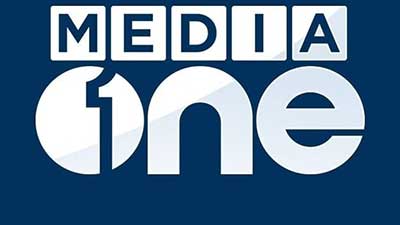Date: 07/04/2023
Relevance: GS-2: Indian Constitution - Historical Underpinnings, Evolution, Features, Amendments, Significant Provisions, and Basic Structure.
Key Phrases: Media One, Jamaat-e-Islami-Hind, Ministry of Information and Broadcasting, Article 19(2) of the Constitution, reasonable restrictions, anti-establishment, National Security, freedom of speech and expression.
Why in News?
- Recently, the Supreme Court overturned the Centre's refusal to renew the broadcast license for Malayalam news channel Media One, which had been denied security clearance over alleged links with the Jamaat-e-Islami-Hind.
- The Kerala High Court's order, which upheld the government's action, was also set aside by a bench presided by the Chief Justice of India.
What is the issue?
- The Ministry of Information and Broadcasting had on January 31, 2022, refused to renew the broadcast licence of Malayalam channel Media One on the ground that the Ministry of Home Affairs had declined to grant it security clearance while considering the request for renewal of license.
- The MHA, as per the Supreme Court judgment delivered recently, cited alleged links between the channel promoters Madhyamam Broadcasting Limited and the Jamaat-e-Islami Hind. Following this, the channel was taken off the air.
What happened in the High Court?
- Media One approached the Kerala High Court against the Centre's action, where the government cited national security as the reason for revoking the license.
- A single bench of the HC upheld the ban on the channel, which was later affirmed by a division bench.
What happened in the Supreme Court?
- The SC stayed the Kerala High Court order and allowed the channel to resume operations.
- The channel promoters contended that they were not given a chance to defend themselves as the national security reasons cited to deny renewal of the licence were submitted to the HC in a sealed cover.
- It contended that the fundamental right to freedom of speech and expression, which includes press freedom, can be restricted only on the grounds enumerated under Article 19(2) and that there was no allegation that the channel violated the Program Code.
Is Critical Media Anti-Establishment?
- The top court observed that the Centre's ban on Media One restricted the freedom of the press and criticizing government policy, would by no means, fall within the folds of a “reasonable restriction” under Article 19(2) of the Constitution.
- Observations made:
- The court stated that denying security clearance to a media channel based on its constitutionally entitled views restricts press freedom and violates the right to free speech under Article 19(1)(a) of the Constitution.
- It noted that the press has a duty to speak truth to power and present citizens with hard facts to make informed choices, and any restriction on press freedom would homogenize views on socio-economic and political issues, posing grave dangers to democracy.
- The court criticized the use of the term "anti-establishment" to label critical views of the government, stating that it represents an expectation that the press must support the establishment.
- The court emphasized that criticism of government policies is not a ground for imposing restrictions on freedom of speech under Article 19(2) of the Constitution.
What did the Supreme Court say?
- National Security Claims Must Be Backed by Material:
- The court also stated that while it would be impracticable and unwise for the courts to define the phrase "national security," national security claims cannot be made out of thin air. There must be material backing such inference.
- The court found that in this case, the material on the file and the inference drawn from such material had no nexus.
- The State Cannot Use National Security to Deny Citizens' Remedies:
- The court noted that in this case, "the state is using national security as a tool to deny citizens remedies that are provided under the law. This is not compatible with the rule of law."
- This suggests that the state cannot use national security as a means to deny citizens their legal rights.
- JEIH is Not a Banned Organization:
- The court also addressed the Ministry of Home Affairs (MHA) denying security clearance on the ground that the channel had links with Jamaat-e-Islami Hind (JEIH).
- The SC stated that since JEIH is not a banned organization, it would be rather precarious for the state to contend that links with the organization would affect the sovereignty and integrity of the nation, the security of the state, friendly relations with foreign states, or public order.
- Denying Security Clearance Without Evidence:
- The court further stated that there was no evidence on record to show that the channel's shareholders are sympathizers of JEIH.
- Therefore, the purpose of denying security clearance did not have a legitimate goal and a proper purpose.
- This suggests that the government cannot deny security clearance without proper evidence or a legitimate reason.
Conclusion:
- The Supreme Court's decision is a significant victory for Media One, which can now resume its operations.
- It also sends a strong message to the government that national security claims cannot be made out of thin air and must have a valid basis.
- The decision upholds the principles of freedom of speech and expression and reinforces the importance of the rule of law.
Source: The Indian Express
Mains Question:
Q. Discuss the conflict between freedom of speech and national security in light of the recent Supreme Court judgment in the Media One case. Analyse the significance of the judgment in upholding the principles of free speech and expression.






















